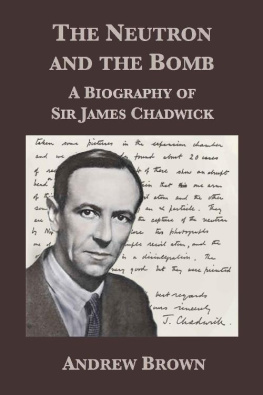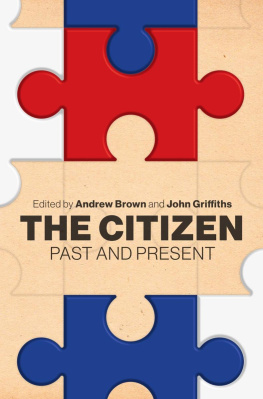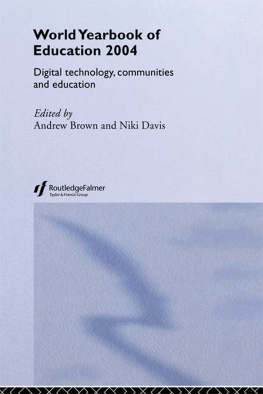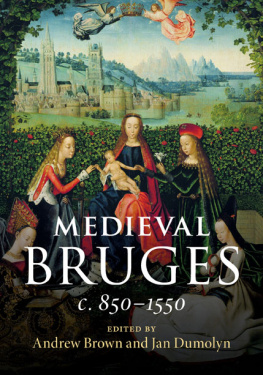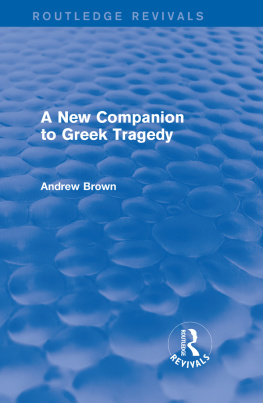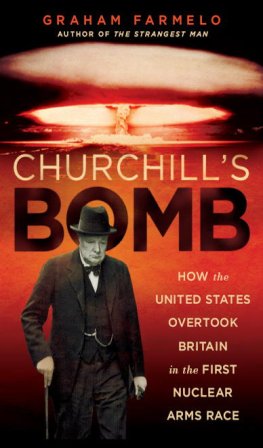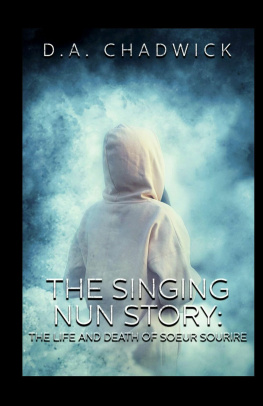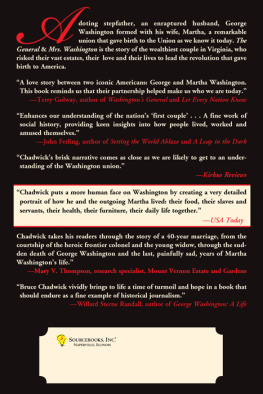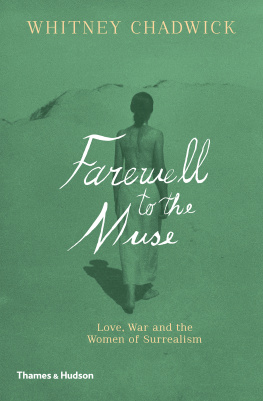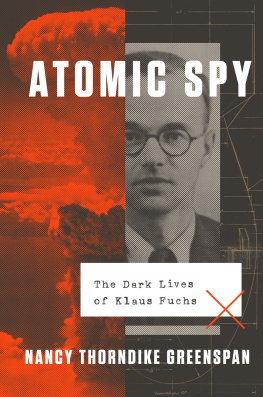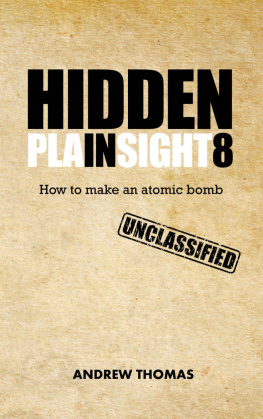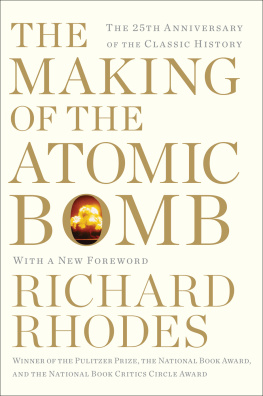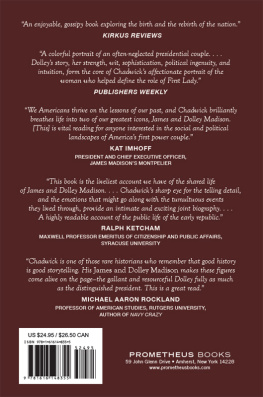The Neutron and the Bomb
A biography of Sir James Chadwick
by Andrew Brown
Published by Plunkett Lake Press, August 2018
Andrew Brown, 1997
Cover by Susan Erony
~ Other eBooks from Plunkett Lake Press ~
By Finn Aaserud
Redirecting Science: Niels Bohr, Philanthropy, and the Rise of Nuclear Physics
By Luis W. Alvarez
Alvarez: Adventures of a Physicist
By Niels Blaedel
Harmony and Unity: The Life of Niels Bohr
By Thomas Neville Bonner
Iconoclast: Abraham Flexner and a Life in Learning
By David C. Cassidy
J. Robert Oppenheimer and the American Century
By Herbert Childs
An American Genius: The Life of Ernest Orlando Lawrence, Father of the Cyclotron
By Arthur Holly Compton
Atomic Quest
By Carl Djerassi
The Pill, Pygmy Chimps, and Degas Horse
By Raymond B. Fosdick
John D. Rockefeller, Jr.: A Portrait
By Otto Robert Frisch
What Little I Remember
By Samuel Goudsmit
Alsos
By Andy Grove
Swimming Across
By Sebastian Haffner
Churchill
The Meaning of Hitler
By James Hershberg
James B. Conant: Harvard to Hiroshima and the Making of the Nuclear Age
By Banesh Hoffmann
Albert Einstein: Creator and Rebel
By Matthew Josephson
Edison: A Biography
By Norman Macrae
John von Neumann: The Scientific Genius Who Pioneered the Modern Computer, Game Theory, Nuclear Deterrence, and Much More
By Kurt Mendelssohn
The World of Walther Nernst: The Rise and Fall of German Science 1864-1941
By Steven Neuse
David E. Lilienthal: The Journey of an American Liberal
By Patricia Rife
Lise Meitner and the Dawn of the Nuclear Age
By John Rigden
Rabi: Scientist and Citizen
By Michael Riordan
The Hunting of the Quark
By Claudio Segr
Atoms, Bombs and Eskimo Kisses: A Memoir of Father and Son
By Emilio Segr
A Mind Always in Motion: The Autobiography of Emilio Segr
Enrico Fermi, Physicist
By Dietrich Stoltzenberg
Fritz Haber: Chemist, Nobel Laureate, German, Jew
By Victor Weisskopf
The Joy of Insight: Passions of a Physicist
By Richard Willsttter
From My Life: The Memoirs of Richard Willsttter
By Stefan Zweig
Amerigo: A Comedy of Errors in History
Magellan: Conqueror of the Seas
For more information, visit www.plunkettlakepress.com
For Jane, Jamie, Ben and Ollie
Contents
Preface
One spring afternoon in the early 1950s, an economist and a nuclear physicist were sauntering idly along the backs of the River Cam. Just as a couple of schoolboys on the same walk might have argued about the batsmanship of Denis Compton and Len Hutton, the two young dons passed the time making comparisons between academic figures. The economist asked the physicist for his opinion of two leading Cambridge physicists, Sir George Thomson and Sir James Chadwick. Both were Nobel Laureates and the Masters of Cambridge Colleges Corpus Christi and Gonville and Caius, respectively. Sir George was of the Cambridge purple: the son of J.J. Thomson, himself a Nobel prizewinner and discoverer of the electron. In the physicists opinion, George Thomson was a first class scientist, who thoroughly deserved the recognition he had received for his work on the diffraction of electrons passing through very thin films of metals. By contrast, Chadwick, the discoverer of the neutron, was quite simply one of the makers of modern physics.
By coincidence Chadwicks father shared J.J. Thomsons initials and even came from the same part of England, but worked in a cotton mill and died in his seventies, unmourned by his eldest son. James Chadwick was a very close man when it came to personal matters, and I have not been able to discover the reason for the estrangement from his family. He was a product of the late Victorian age, and the aspiration to better himself was a natural one, so that it cannot have been just the urge to shake off his working class origins that was responsible.
Chadwicks keen intelligence was nurtured by remarkably good state schools, and his scientific career blossomed under Rutherfords inspirational leadership, first in Manchester and then at the Cavendish Laboratory in Cambridge. A less fortunate legacy of being born an Englishman in the last decade of the nineteenth century was the duty to fight, and often die, for King and Country in the 1914-1918 war. As readers will see, Chadwick avoided this terrible opportunity by being interned in Germany, where he had been studying with Hans Geiger. Geiger along with many other German scientists went off to the trenches, as did their English counterparts, but the personal warmth and regard for former scientific colleagues never dimmed, as is made plain in some of Chadwicks and Rutherfords wartime correspondence. By the time of the second world war, knowledge in the field of nuclear physics had advanced so far, in large part due to the experimental work carried out and supervised by Rutherford and Chadwick at the Cavendish, that scientists were too valuable to risk in mere combat; by degrees, they came to realize that they held the potential to unleash a new weapon of unimaginable power on the world. Chadwicks life was emblematic of these changes: indeed he was unique in history as the only man to witness both the Kaiser announcing the outbreak of war to Berliners in 1914 and the explosion of the first atomic bomb in the New Mexico desert in 1945. Between these two cataclysmic events Chadwick discovered the subatomic particle that launched the atomic age; he was centrally involved in the bombs development from the first months of the war.
There were no such possible ramifications in Chadwicks mind while he carried out his dogged search for the neutron. It is remarkable how the Cavendish Laboratory in the 1920s and 1930s managed to retain the carefree approach of happier times, with scarcely a thought given to the utility of any of its discoveries. In Chadwicks view they were competing with nature to unlock its secrets. Apart from some banter between him and Rutherford about alchemy, commercial considerations were entirely absent; nor were practical applications of major concern. As captain of the vessel, Rutherford set a bold course to explore the innermost depths of the nucleus, and Chadwick as his helmsman stuck to his directions tenaciously. The impenetrability of their chosen route led to criticism from more faint-hearted and worldly bodies, but they were not to be deflected. Their purity of purpose meant that the only ethical dilemma that confronted them concerned the means of their search were they being scrupulously objective in their observations and this was the subject of a spirited controversy with the school of physics in Vienna. There were no qualms about the outcome knowledge could not be inherently dangerous.
Chadwick was abruptly thrown from this state of innocence when he realized that the energy stored in the uranium nucleus could be released in an explosion of devastating power. It seemed highly probable to him that his former colleagues in Germany would have reached the same conclusion, and so despite any personal misgivings, it was necessary to pursue this idea as vigorously as possible to the point of production of a weapon. His efforts towards this end both as a scientific leader and in the unaccustomed role of a trusted diplomat were immeasurable. When the first atomic bomb was successfully detonated at the Trinity test, Germany was no longer a combatant and the United States was clearly the only country in possession of the weapon, but Chadwick thought its use against Japan was justified. In the immediate aftermath, he held a press conference in Washington and warned an unheeding American public that the US monopoly in nuclear weapons would be short-lived.
Next page
